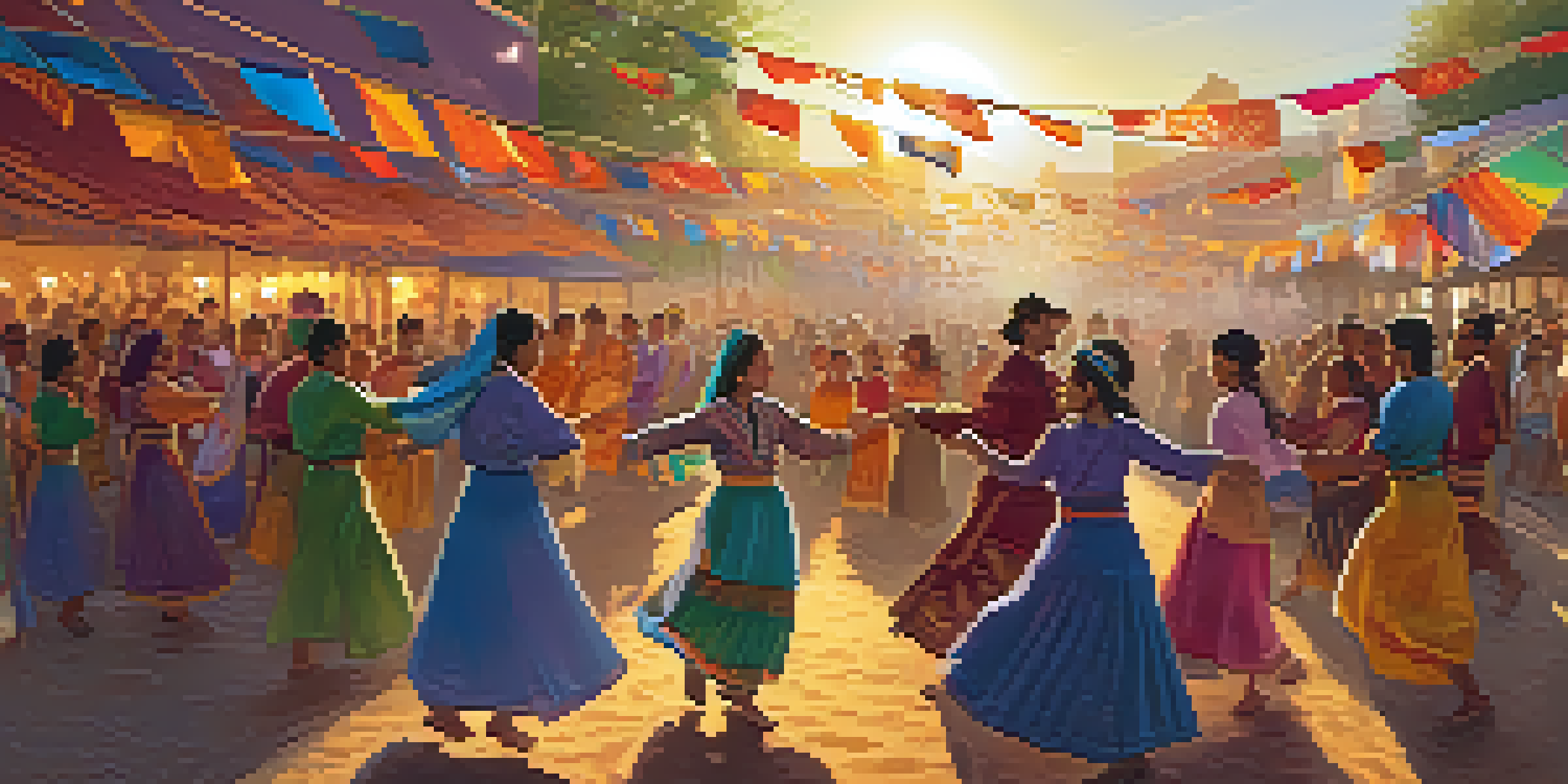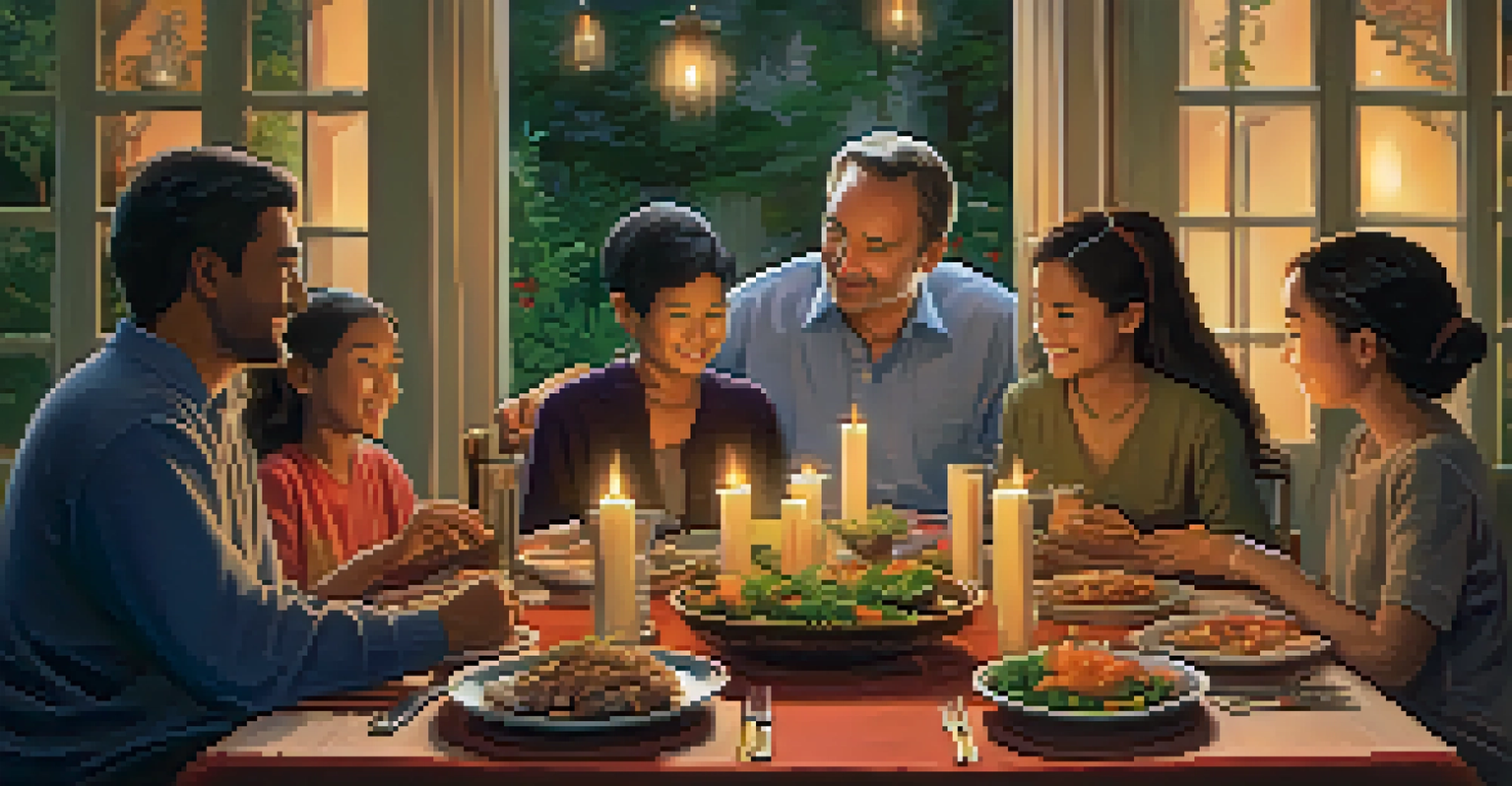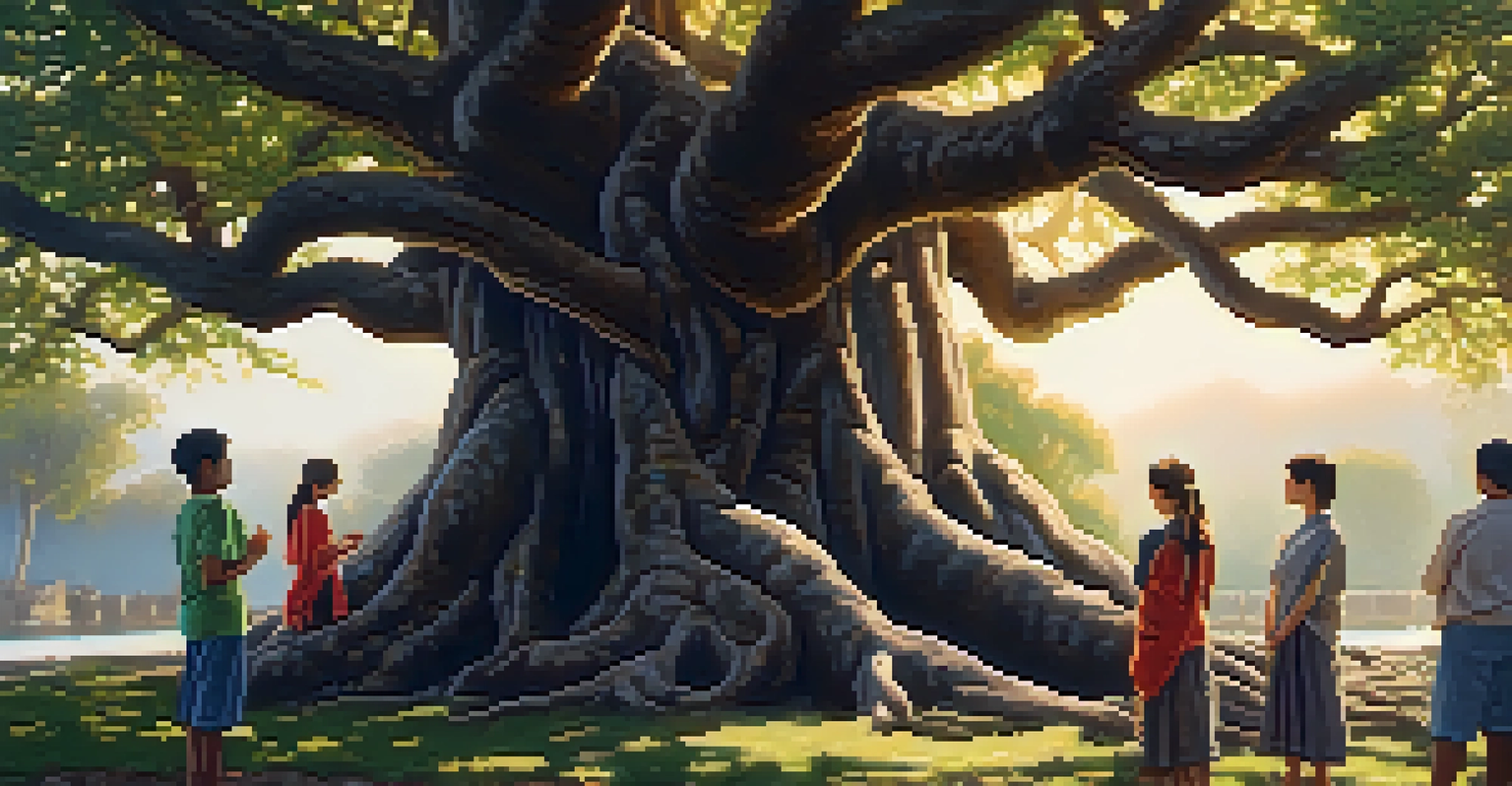Cultural Ancestry: Bridging Past Beliefs with Modern Faith

Understanding Cultural Ancestry in Today's Context
Cultural ancestry encompasses the beliefs, traditions, and practices passed down through generations. It's like a tapestry woven from the threads of history, creating the rich fabric of our identities. In today's fast-paced world, many are seeking ways to connect with their roots, blending ancient wisdom with contemporary life.
The past is never dead. It's not even past.
This journey often leads individuals to explore their heritage, whether through family stories, cultural festivals, or religious practices. By understanding where we come from, we can better navigate our present and future. This connection fosters a sense of belonging and informs our values, guiding us in our decisions and relationships.
Moreover, as people increasingly identify with multiple cultures, the fusion of these ancestral beliefs with modern faith becomes an enriching experience. It allows for a personalized spiritual journey that honors the past while embracing the present, paving the way for a more inclusive understanding of faith.
The Role of Traditions in Shaping Beliefs
Traditions serve as a bridge between the past and present, embodying the values and practices that define communities. They offer a sense of stability and continuity, reminding us of the wisdom of our ancestors. For instance, many people attend cultural ceremonies or festivals that celebrate their heritage, fostering a deep connection to their roots.

These traditions can also influence modern spiritual practices, as individuals adapt ancient rituals to fit their current lifestyles. For example, meditation practices from ancestral cultures are now widely embraced as a path to mindfulness and well-being. This adaptation highlights the dynamic nature of faith and spirituality, showing how they evolve over time.
Cultural Ancestry Shapes Identity
Understanding our cultural ancestry helps us connect with our roots and navigate our present and future.
As we incorporate these traditions into our modern lives, we not only honor our ancestors but also enrich our spiritual experience. This blending can lead to a more profound understanding of ourselves and the world around us, allowing us to appreciate the diversity of beliefs that exist today.
Modern Faith: Seeking Meaning and Connection
In an age characterized by rapid change and uncertainty, many seek deeper meaning in their lives. Modern faith often emerges from this quest, leading individuals to explore various belief systems. This exploration can include everything from organized religion to personal spiritual practices, reflecting a desire for connection and understanding.
To know where you come from is a prerequisite for where you are going.
As people look to the past for guidance, they often find inspiration in ancestral beliefs. This can manifest in the adoption of rituals, symbols, and teachings that resonate personally. For example, someone might incorporate elements of their ancestors' spiritual practices into their daily life, creating a unique blend of old and new.
The quest for meaning is not just about individual spirituality; it also fosters community. By sharing and celebrating these blended practices, people create bonds with others who share similar journeys, leading to a richer, more connected experience of faith.
The Intersection of Ancestral Wisdom and Modern Practices
Ancestral wisdom often provides timeless insights that can be applied to modern life. Many find that the teachings of their forebears offer guidance on navigating contemporary challenges. For instance, practices such as gratitude, respect for nature, and community support are values that resonate across cultures and eras.
Incorporating these values into modern practices can enhance our emotional and spiritual well-being. For example, family gatherings centered around traditional meals can foster connection, while community rituals can reinforce a sense of belonging. This not only honors our heritage but also cultivates a supportive environment for personal growth.
Traditions Bridge Past and Present
Traditions provide stability and continuity, enriching modern spiritual practices through the adaptation of ancestral rituals.
As we intertwine ancestral wisdom with our daily practices, we create a more holistic approach to spirituality. This integration allows for a richer understanding of ourselves and our place in the world, reminding us that the past can illuminate our path forward.
Challenges of Merging Past Beliefs with Modern Faith
While blending ancestral beliefs with modern practices can be enriching, it also presents challenges. One common issue is the potential for cultural appropriation, where elements of one culture are adopted without understanding or respect. This can lead to misunderstandings and can dilute the significance of those practices.
Another challenge is reconciling differing beliefs within families or communities. As individuals explore their spiritual paths, they may encounter resistance from those who adhere strictly to traditional practices. Navigating these differences requires open communication and a willingness to honor each person's journey.
Ultimately, the goal is to find harmony between honoring our past and embracing our present. By approaching these challenges with empathy and respect, we can create a spiritual landscape that celebrates diversity and fosters understanding among all.
Creating a Personal Spiritual Journey Through Ancestry
Crafting a personal spiritual journey rooted in ancestry is an empowering experience. It begins with self-reflection, where individuals can explore their values, beliefs, and the traditions that resonate with them. This process often involves researching family history, attending cultural events, or engaging in practices that connect them to their roots.
As one delves into their ancestry, they may discover rituals or teachings that hold special significance. Incorporating these elements into daily life can create a sense of continuity and purpose. For instance, lighting candles during significant family observances can connect individuals to their heritage while also serving as a moment of personal reflection.
Embracing Diversity in Faith
The future of spirituality involves a blend of cultural ancestry and modern beliefs, promoting inclusivity and understanding.
This personalized approach to spirituality not only honors the past but also enriches the present. By recognizing and celebrating our unique journeys, we contribute to a broader tapestry of belief that acknowledges the value of diverse experiences and perspectives.
The Future of Cultural Ancestry and Faith
Looking ahead, the fusion of cultural ancestry and modern faith is likely to evolve further. As globalization connects us more than ever, individuals will continue to explore diverse belief systems and incorporate elements that resonate with them. This ongoing exploration promotes a more inclusive understanding of spirituality, where multiple narratives coexist.
Moreover, technology plays a significant role in this evolution. Online communities and social media platforms allow individuals to share their experiences, learn from others, and find support in their spiritual journeys. This interconnectedness fosters a sense of belonging and encourages dialogue about the significance of cultural ancestry.

Ultimately, the future of cultural ancestry and faith is about embracing diversity and honoring the richness of human experience. As we continue to learn from our past, we can create a more compassionate and understanding world, where everyone’s beliefs and traditions are valued.